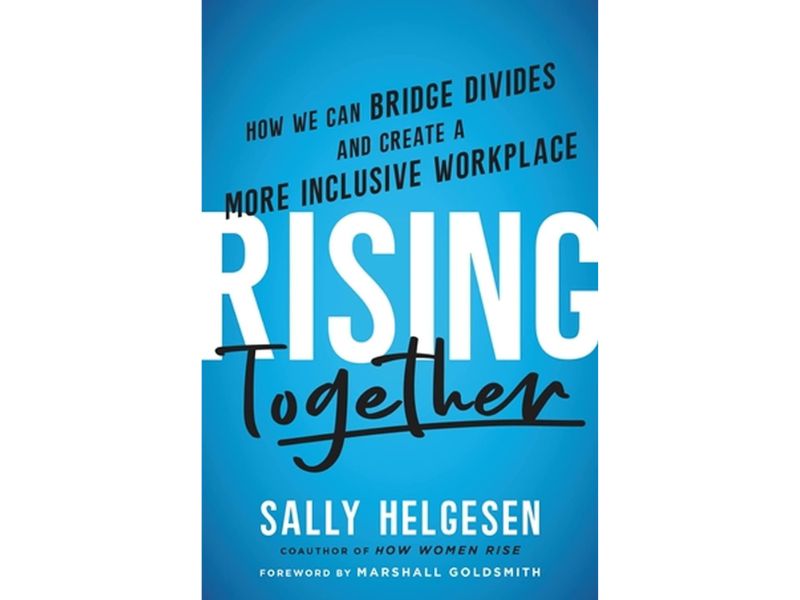You have to be competent and work hard to succeed in any career but, if you are a woman working in a male dominated industry, you may find that you have to work twice as hard and be twice as competent to succeed.

Constantly having to prove yourself can be frustrating and I’m often asked what it is like. Proving your competency is necessary but I’d like to share some other things, which help me be successful in my career and are of particular importance when you work in a male dominated industry such as construction.
Watch your language
I consciously try to remove self-deprecating language from my speech and emails. Women tend to use ‘qualifiers’ far more than men and their use makes you look unsure, weakens your point and seem like you don’t know what you’re talking about. This low power language is especially problematic when everyone around you gives the impression they know exactly what they are talking about and are 100% certain (even when they are wrong). I stop myself saying such things as ‘I’m no expert but…’ or ‘I could be wrong’ when I know damn well I am not wrong. I avoid saying ‘sorry’ for no reason (but do say it when I mean it), ‘just’ and ‘actually’ I actively scan emails and letters and delete these words. There is even an app for this called Just Not Sorry, ‘I just think’ becomes ‘I think’ or ‘I actually disagree’ becomes ‘I disagree’. Even though I’m aware of them, it’s surprising how often these words sneak in to my emails and need to be deleted before I hit send!
Body language
In the same way that language can reduce your power, so too can body language. If you ever attend meetings, interviews, give presentations or talk to people at work then I highly recommend watching Amy Cuddy’s Ted Talk on ‘Your body language shapes who you are’. If I were to summarise the main message, it would be to pretend you’re confident even when you’re not.
Self-belief
During a class at business school I once said “I would like to be Managing Director but only when I’m ready”. My brilliant professor (Jennifer Petigrileri) immediately pulled me up on this and helped me understand why that mindset is obstructive. An oft quoted McKinsey paper claims that men will apply for a job when they meet 60% of the requirements and women wait until they meet 100%. It’s clear to see why this is unhelpful for career development. I highly recommend reading Lean In by Sheryl Sandberg. And, when you get an opportunity to take on a project / promotion / new job etc, then go for it. Say yes! It’s scary but you’ll learn the stuff you don’t know when you get there. Know that the other people going for it don’t know everything either.
Be yourself
After saying I think carefully about the language I use, the way I sit and I push myself out of my comfort zone to take on things I don’t feel ready to do it may seem like a contradiction for me to then say ‘be yourself’. Female leaders in male dominated industries may feel like they face something of a paradox. The traditional view of a leader (strong, dominant, decisive, alpha male) does not match the traditional view of a woman (gentle, emotional, caring, submissive). But the modern workplace demands very different leaders (empathetic, emotionally intelligent, inspirational, empowering, authentic). Skills that both male and female leaders need to master. I enjoy working with men but I don’t try and act like a man. I believe that you have to enjoy your job to be good at it and constantly trying to be something you are not is both unsustainable and inauthentic.
Of course, these tips and advice will only help the women working in traditionally male dominated industries and I certainly do not believe that the responsibility for change lies solely with us. There is ample evidence to show that diverse companies outperform others and yet, surprisingly, I still see a lack of understanding of the business case for diversity. It is up to the existing CEOs, MD, Managers and boards to do a lot more to address this issue; to better communicate the business case for diversity; to introduce unconscious bias training; to ensure their businesses do not have problematic policies and practices in place; and, to clearly and consistently communicate that diversity is important. Ultimately, the lack of women in construction and other similar industries is not a women’s problem: it is a business problem. The sooner we can tackle it the better our industry will perform.
Emma Porter is a Senior Consultant for Arup based in the North West and has worked in the construction industry for ten years. She previously worked as Head of Operations for Story Contracting, has an MBA from Insead and is often asked to speak about diversity in the construction industry. Read more about Emma, along with other women working in construction here








